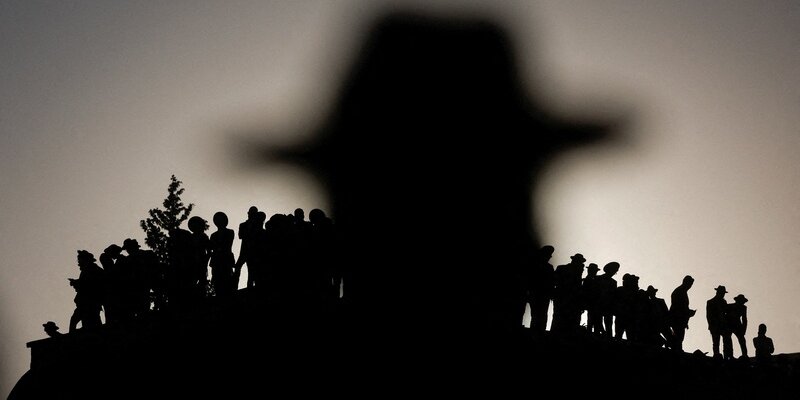Citizens under surveillance: "Instead of the police doing its job, citizens are surveilling each other"
We are constantly being filmed: On the beach in our swimsuits, at the gas station, on the road, and while we’re looking for a parking spot. Drones are photographing us from the skies and the lobby of every building now has closed-circuit cameras. Sometimes we know we’re being filmed, but most of the time we’re blissfully unaware. Citizens have barely any access to the filmed material or to the ever-growing databases that record where we’ve been and exactly when we were at any given moment. The public space has never been as exposed and every citizen is considered a suspect until proven otherwise.


We are constantly being filmed: On the beach in our swimsuits, at the gas station, on the road, and while we’re looking for a parking spot. Drones are photographing us from the skies and the lobby of every building now has closed-circuit cameras. Sometimes we know we’re being filmed, but most of the time we’re blissfully unaware. Citizens have barely any access to the filmed material or to the ever-growing databases that record where we’ve been and exactly when we were at any given moment. The public space has never been as exposed and every citizen is considered a suspect until proven otherwise.

We are constantly being filmed: On the beach in our swimsuits, at the gas station, on the road, and while we’re looking for a parking spot. Drones are photographing us from the skies and the lobby of every building now has closed-circuit cameras. Sometimes we know we’re being filmed, but most of the time we’re blissfully unaware. Citizens have barely any access to the filmed material or to the ever-growing databases that record where we’ve been and exactly when we were at any given moment. The public space has never been as exposed and every citizen is considered a suspect until proven otherwise.
Photo: Shutterstock

Chen Shalita
December 15, 2021
Summary


Listen to a Dynamic Summary of the Article
Created using NotebookLM AI tool
Even without the official bodies that keep tabs on Israeli citizens, our lives are being documented with cameras – with and without our knowledge. And it’s not just in convenience stores, gas stations, and supermarkets. There are also cameras on the beach, capturing the state of the waves for surfers. There are applications that locate free parking spaces and, at the same time, anyone who happens to be passing by. Moreover, you don’t need to be super rich, famous, or a criminal to have CCTV installed in your home. “It’s become as normal as installing lighting,” says one privacy expert. As a result, there has been a spate of arguments between neighbors over the installation of a new camera. These spats shed light on the phenomenon and its ramifications.
In apartments blocks built over the past few years, there is even closer surveillance. In corridors, the parking lot, the elevator – there are cameras everywhere. Most residents accept this as part and parcel of living in a luxury apartment complex, without asking who is watching the footage in real-time, how many cameras there are, what they are filming, how long the footage is kept, and who has access to it.
“People are unaware of the implications of so much filming,” says Dorit Garfunkel, an attorney and urban planner who is researching the phenomenon of apartment towers for the Technion. “Just think how much information can be gathered about you and your daily routine from cameras filming you in your home environment. Four years ago, I interviewed residents of tower blocks for my research and I asked them whether the companies that run their buildings have signed any kind of confidentiality agreement. They looked at me like I was mad.”
According to Prof. Michael Birnhack, a privacy expert from the Law Faculty of Tel Aviv University, “this is an issue in which the public discourse is as important as the legal discourse. What’s happened here is that surveillance has been privatized. So, instead of the police doing their job, we’re surveilling each other, by means of an industry that has an interest in promoting the phenomenon. The normalization of citizens surveilling each other also leads to a change in the rules: the new assumption is that nothing is private anymore because there are cameras everywhere; even when we can’t see them, on the beach or the most secluded spot. Cameras remember everything and they never stop recording. We have no idea who’s behind them and what they do with that information.”













